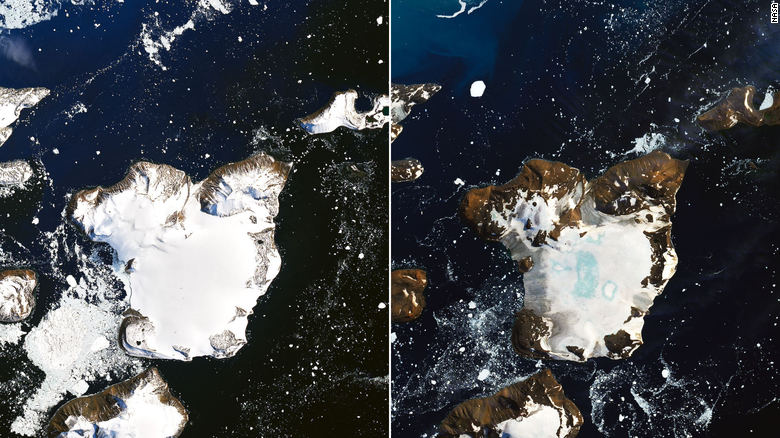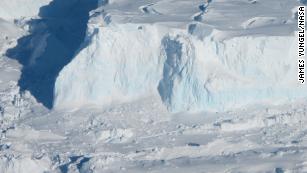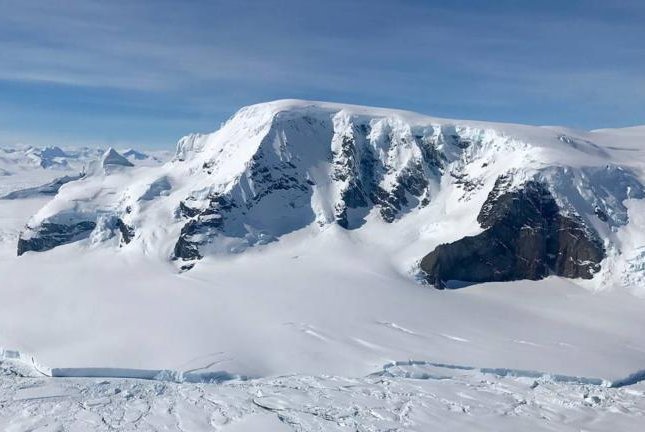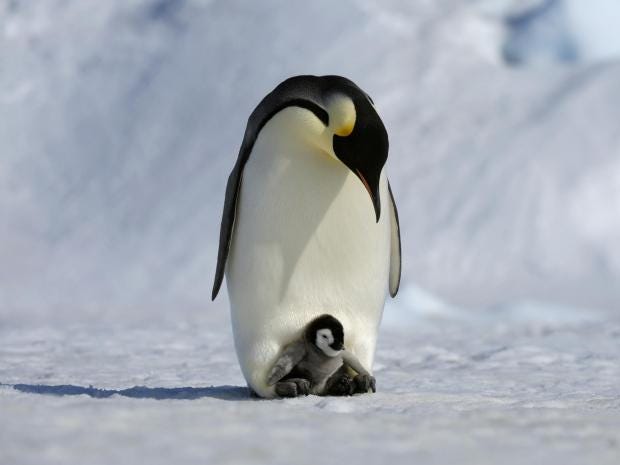“A heat wave in Antarctica melted 20% of an island’s snow in 9 days”

https://edition.cnn.com/2020/02/24/world/antarctica-heat-wave-melt-february-trnd/index.html
A nine-day heat wave scorched Antarctica’s northern tip earlier this month. New NASA images reveal that nearly a quarter of an Antarctic island’s snow cover melted in that time — an increasingly common symptom of the climate crisis.
“A climate activist swam under the Antarctic ice sheet to prove how quickly glaciers are melting”

https://edition.cnn.com/2020/02/03/world/lewis-pugh-swims-arctic-climate-change-trnd/index.html
Fifty-year-old Lewis Pugh says he was terrified when he plunged into the water of East Antarctica in nothing but swim briefs, a swim cap and goggles. He was even more terrified when he swam below the Antarctic ice sheet, through melting tunnels — though he said it was the most beautiful swim he’s ever done.
“Antarctica is shedding six times more ice mass than it was 40 years ago”

Antarctica is melting and shedding ice at an accelerated clip. According to a new study, Antarctica is losing six times more ice mass than it was 40 years ago.
“How This Supercolony of 1.5 Million Penguins Stayed Hidden for Nearly 3,000 Years”
https://www.livescience.com/64282-hidden-adelie-penguin-supercolony.html
But some of the team’s new findings suggest that although 1.5 million seems like a big number, it’s not as large as it once might have been. After their initial analyses of recent satellite imagery, the team decided to look at past satellite images that date back to 1982.
“Governments are deciding whether to create an Antarctic Ocean Sanctuary.”

https://www.greenpeace.org/international/story/18852/antarctic-sanctuary-what-you-need-to-know/
Over two weeks in late October, governments will meet in Hobart, Australia, to decide whether to create a vast Antarctic Ocean Sanctuary, covering almost two million square kilometres. If it goes ahead, it’ll be the largest protected area on the planet.
“The once pristine waters of Antarctica now contain plastic fibers”

https://qz.com/1299485/antarcticas-waters-now-contain-plastic-fibers/
Samples of water and snow from across Antarctica contain tiny plastic fibers and traces of industrial chemicals, according to a new report from environmental advocacy group Greenpeace.
“New penguin super-colony spotted from space”

With the help of satellite images, scientists were able to locate 1.5 million Adélie penguins congregating on a remote, jagged outcropping of islands known as the Danger Islands.
“China forced to tell Antarctica tourists: ‘Don’t’ touch the penguins'”

The Chinese government earlier this week established a new list of rules for people visiting Antarctica: No hunting. No leaving behind solid waste. And no touching or feeding the penguins.
“Antarctica Was Once Covered in Forests. We Just Found One That Fossilized.”

The researchers found the prehistoric plants could transition rapidly between seasons, perhaps within the span of a month. Whereas modern plants take months to transition and conserve water differently depending on the time of day, the ancient trees could fluctuate quickly between pitch black winters and perpetually sunny summers.
“The Winners And Losers Of Antarctica’s Great Thaw”
As the ice-free areas expand, the distances between them will decrease, giving plants and animals more opportunity to spread through the landscape. On the Antarctic Peninsula, which has already warmed more than anywhere else in Antarctica, many of the ice-free patches will expand so much that they will start joining together.
Will this increase in habitat availability benefit the plants and animals that live there? It will definitely provide new opportunities for some native plants and animals to expand their range and colonise new areas. The warming climate may also give a boost to species that are currently hampered by the lack of warmth, nutrients and water.
However, the potential benefits seem likely to be outweighed by the negatives. The joining-up of habitat patches could allow species that have been isolated for much of their evolutionary past to meet suddenly. If the newcomers to a particular area outcompete the native species, then it may lead to localised extinctions. Over the coming centuries this could lead to the loss of many plants and animals, and the homogenisation of Antarctica’s ecosystems.


Recent Comments